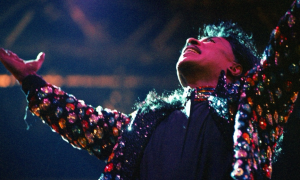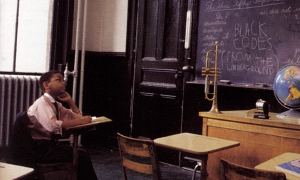Home » Jazz Articles » Opinion » You are wrong Billy Cobham
You are wrong Billy Cobham
The first time I heard Tony Williams was on Miles Davis' 'Seven Steps to Heaven.' Has Billy Cobham ever heard the album? Williams' playing totally undermines assertions that he did not listen to his bandmates
Here's the context. In the magazine's Before & After column, Cobham was asked for his opinion of "Abracadabra" by Cindy Blackman, from that drummer's album Music for the New Millennium (Synth Sound, 2008).
Having criticised Blackman for overplaying, Cobham went on to say: "She should know better than that...Tony Williams' days are long gone. That was his Achilles heel. He did not play listening to people; he played louder and louder. He had a record called Ego (Polygram, 1970), and that was his big problem, not listening...When he was with Miles (Davis) it was about, hey, we've got a 17-year-old brat here playing drums and he's got this new idea! At every other station was an extremely disciplined musician. And along comes this brash young person that could be marketed and they put him in the limelight—when, in fact, he had great ideas but he hadn't been able to really mold them yet."
The first time I heard Williams was on the title track of trumpeter Miles Davis' Seven Steps to Heaven (Columbia, 1963). Williams was 17 at this time. Williams' playing on this one track alone totally undermines the assertions that he did not listen to his bandmates and that his own ideas were raw and unformed.
Quite the contrary. Any objective listener would surely agree that Williams' timekeeping behind Davis is amazing, far advanced upon that found on most other jazz recordings of the period. Davis takes four choruses. Listen to what Williams does just before going into the bridge of the first chorus. He perfectly matches Davis' quarter-note, quarter-note, eighth-note, eighth-note, tied eighth-note phrasing in classic call and response fashion. Then there's the drummer's set up into the top of the fourth chorus. His snare chatter fits evenly between Davis' notes before climaxing with a big, emphatic downbeat. Williams simply could not have played with such synergy had he not been 100% tuned into what Davis was playing.
Another great example of Williams' active-listening, and ability to channel what he is hearing, is his interplay with pianist Herbie Hancock on the same track. Their hook-up at the end of saxophonist George Coleman's first chorus is extraordinary—so subtle, so completely appropriate. By the end of Coleman's third chorus, drummer and pianist sound more like one person operating two instruments simultaneously. Again, Williams simply could not have done it had he not been listening with both ears.
In Michelle Mercer's biography, Footprints: The Life and Work of Wayne Shorter (Penguin, 2004), bassist Ron Carter describes Williams' playing with the Davis quintet best when he says, "Tony could sound like Max Roach or Art Blakey or Philly Joe Jones in any given second. Freedom was when any one of the five people in the group could immediately identify that and jump to that page in their book. That's freedom for me, to have that kind of musical awareness, where the ego is not part of the music."
It is that kind of musical awareness that made Tony Williams so successful, such a revelation at such a remarkably young age.
< Previous
Winter Sunshine
Next >
Red Sphere
Comments
Tags
For the Love of Jazz
 All About Jazz has been a pillar of jazz since 1995, championing it as an art form and, more importantly, supporting the musicians who create it. Our enduring commitment has made "AAJ" one of the most culturally important websites of its kind, read by hundreds of thousands of fans, musicians and industry figures every month.
All About Jazz has been a pillar of jazz since 1995, championing it as an art form and, more importantly, supporting the musicians who create it. Our enduring commitment has made "AAJ" one of the most culturally important websites of its kind, read by hundreds of thousands of fans, musicians and industry figures every month.




















